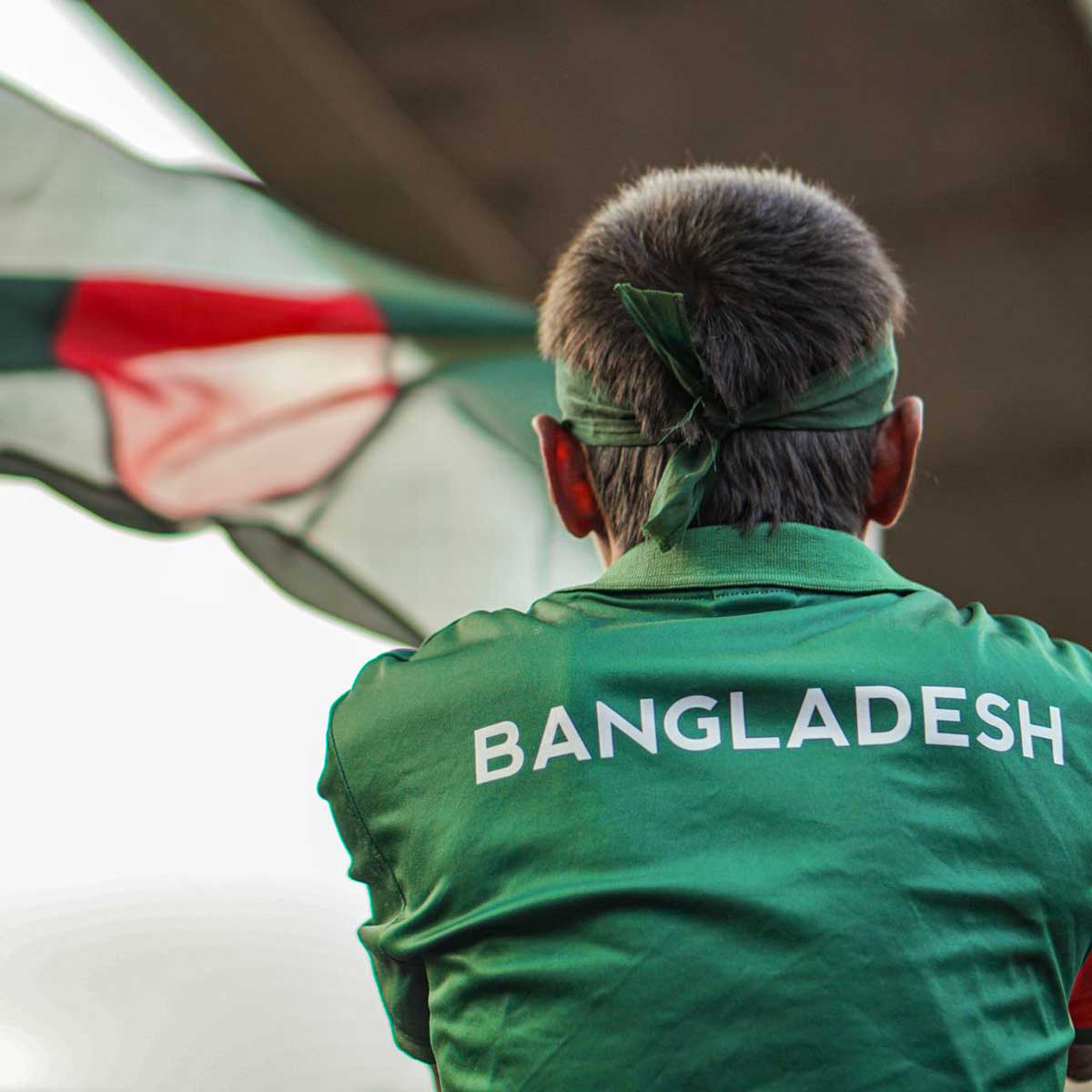A year has passed since the historic July-August revolution in Bangladesh—a people’s uprising that began as a student-led movement against an unjust quota system but quickly escalated into a nationwide demand for systemic change. The protests, which originated at the University of Dhaka, spread across the country, leading to violent crackdowns by the government, the fall of Prime Minister Sheikh Hasina’s regime, and her eventual flight to India to seek refuge.
Persistent Discrimination That Ignited the Revolution
Hasina’s government had long relied on mock trials, enforced disappearances, and extrajudicial killings to silence opponents. The notorious “crossfire” killings by security forces and politically motivated imprisonments—including the harassment of Nobel Laureate Dr. Muhammad Yunus on fabricated charges—exposed the regime’s disregard for justice. The movement began in July 2024 when students took to the streets to protest the discriminatory quota system in government jobs, which reserved a significant portion of positions for specific groups, undermining meritocracy. However, the anger ran much deeper. Years of unchecked corruption, media censorship, and suppression of dissent had left Bangladeshi youth disillusioned. The ruling regime’s iron grip on power, backed by India’s unconditional political and economic support, had fueled growing anti-Indian sentiment among the people, who saw foreign backing as enabling oppression.
What started as a demand for reform soon turned into a broader call for accountability and democracy. The government responded with brutal force. With the help of pro-regime student wings, security forces opened fire on unarmed protesters. By official counts, over 1,400 people were killed—though the actual number is believed to be much higher. Among the victims was Abu Sayed, a courageous student activist whose cold-blooded murder by police on an open street became a rallying cry for the movement. His death, along with countless others, exposed the regime’s brutality and galvanized the nation against Sheikh Hasina and the ruling Awami League.
The Diaspora Mobilized in Solidarity
As the crackdown intensified, the Bangladeshi diaspora around the world mobilized in solidarity. From Berlin to New York, London to Toronto, expatriates organized protests, lobbied foreign governments, and amplified the voices of those risking their lives back home.
In Germany, cities like Berlin, Frankfurt, Hamburg, Bonn, and Munich saw massive demonstrations—week after week—despite pro-regime supporters spreading propaganda. The persistence of the diaspora drew international attention, with many non-Bangladeshis joining the protests to stand in solidarity with the people’s struggle. The movement’s visibility played a crucial role in shaping the European Union’s stance, which condemned the Hasina regime’s human rights abuses and called for justice and democratic reforms.
Through social media campaigns, op-eds, and lobbying efforts, the diaspora kept global pressure on the regime, ensuring that the world did not turn a blind eye to the atrocities.
The Regime’s Fall and the Quest for Reform
Faced with an unrelenting uprising, Sheikh Hasina initially mocked the protesters and doubled down on repression, ordering even harsher crackdowns that included shutting down telecommunications and internet connections in a desperate bid to cling to power. But the people’s resistance, both at home and abroad, proved unstoppable. On August 5, millions of people marched toward Dhaka. As a result, the regime collapsed, sending Hasina fleeing to India and marking the end of 16 years of authoritarian rule.
Now, under the interim leadership of Nobel Peace Laureate Dr. Muhammad Yunus—himself a victim of Hasina’s vindictive persecution—the Bangladeshi diaspora remains actively engaged. Many have returned home to contribute to reform programs, but their involvement must go further. The government should formally recognize the diaspora’s role and actively seek their expertise in rebuilding institutions. Moreover, pro-regime elements continue to run disinformation campaigns abroad—making it essential for the diaspora to remain vigilant against propaganda and advocate for truth and justice.
Looking Forward: Recognition of Diaspora’s Role
As we mark the first anniversary of this revolution, we remember the sacrifices of those who gave their lives for a better and more prosperous Bangladesh. The struggle is far from over, and the diaspora’s role remains critical.
The future political leadership must not forget the contributions of overseas Bangladeshis. Concrete steps must be taken to improve consular services, ensure voting rights for expatriates, and engage the diaspora in policy-making. The embassies and consulates, which have long been extensions of partisan politics, must transform into true service providers for all citizens, regardless of political affiliation.
The July-August revolution was not just a political upheaval—it was a reawakening of Bangladesh’s spirit. One year later, we stand in solidarity with our brothers and sisters back home, hopeful yet watchful. The diaspora will continue to fight for the Bangladesh that was promised in the streets—a Bangladesh of equity, justice, and dignity for all.





